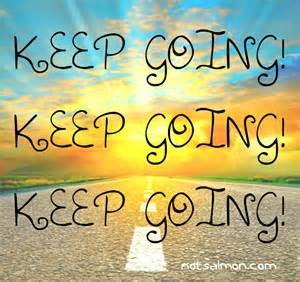I recently had a bad day. In fact, it sort of rolled into an even tougher week. One thing after another just seemed to tumble out of the universe and into my lap. Not the, “I cracked a nail” kind of stuff, but real life challenges. Life-threatening family illness, financial surprises (not the good kind), a fender bender, my dog got fleas, my kids got sick, and more. There was a day where I felt like I couldn’t get my breath. I felt like I was going from one thing to the next, literally panting (rather than taking slow, deep breaths like I remind my clients). I felt like my heart was literally beating out of my chest.

Then I picked up one of my favorite books by Sharon Salzberg. I read a chapter, and it helped me remember that these days (or even weeks) do happen in life. And yet, we survive and continue to find joy. The more we are in tune with ourselves, the more we notice our own feelings and the events of the world. Rather than trying to just tough it through, I was noticing my feelings, which actually was good. But I also needed to remember a few other things too. So in case you are ever in this predicament, here are some pointers.
What To Do (Or Not Do) On a Bad Day

1. Remember: Our thoughts are not necessarily true
They may SEEM true. But, we need to take time to let them settle. We need to ask ourselves, is this really true? What is the evidence? What could I tell myself to feel better?

2. Think about your best friend
What advice would you give your best friend in this situation? If one of my dear friends had the week I had, I would have said, “Go home, go for a walk, take a bath, and go to bed. I’ll call you later and we’ll talk. ” I might have also said, “It will work out. It always does. You are not alone in this. ” I would NOT have said, “This is terrible. You’ll lose your business and your friends and your reputation.” (Or something equally awful).

3. Do not feed the negative thoughts
Paying attention to the thoughts, or even legitimizing them gives them power. The more power we give them, the more they come to visit… or even stay. What we need to do is accept them, and use some self-compassion. You can remind yourself, “Well, of course I’m worried. This was a big shock that I didn’t see coming.” or “Most people would find this stressful.” You can also be really good to yourself. This is the perfect time for self-care or self-soothing. Remember what a good friend would say to YOU.

4. You are not your thoughts
Your thoughts may tell you there is something wrong about you, you don’t know what you are doing in this world, and that you will never feel better. Don’t listen. When we have a headache, we don’t say, “I’m a sore head.” Or when we hit our funny bone, we don’t say, “I’m a hurt elbow.” Similarly, it is just as ridiculous to say, “”I am sad,” or “I am frustrated.” You are experiencing a frustrating experience, or thinking a sad thought. There is a difference. Our thoughts pass from moment to moment and they do not define who we are. This is just a temporary set back. That’s all.

5. Do not self-medicate
Contrary to urban legend, large quantities of chocolate, wine, alcohol, drugs, Venti Café Lattes, or food do not heal wounds. They actually prolong the problem. When we are having a bad day, we often have more adrenaline coursing through our system. Adding anything else to that mix is not helpful. It is better to rest, drink lots of water, or exercise.

6. Do NOT take it out on others, even if it feels like it is their fault
Oftentimes, when we are having a bad day, we just want to let loose. We want to let all of that anger, frustration, sadness, or hurt out and fix our problem. Unfortunately, it doesn’t work that way. If you let it out on your boss, your coworkers, your friends, your spouse, your kids, or your dog, you are only displacing your feelings onto someone else. The only one that you can fix or change is you. By hurting others, you are making it worse on yourself. It IS ok to have a CALM, rational, assertive discussion with someone, but ONLY after you are able to accept the fact that you may have to compromise and change some things yourself. If you can’t do that, you should not approach anyone else with strong feelings. Worst case, you could lose a dear friend, hurt a relationship, or even lose a job.

7. Don’t try to fix yourself today
You will likely learn a few things from your bad day. You may even become healthier in the big picture. But by pushing through it, and by trying to fix everything all at once is a form of avoidance. And it will not be successful. Today, it is important to BREATHE (not pant), pause, use self-compassion, and rest. Tomorrow, come up with an action plan.

What To Commit To Memory on a Bad Day
The ultimate success is not about not having any more bad days or weeks. The success is that you are kind to yourself and keep going.

![]()
